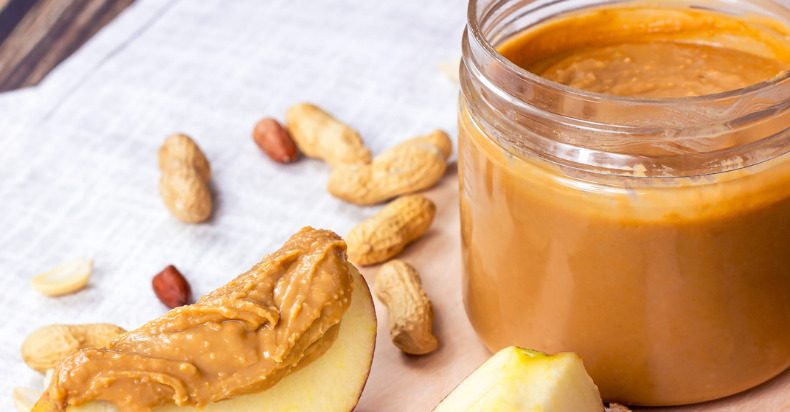Peanut butter is the creamy and ground form of dry roasted peanuts that’s enjoyed by millions of people around the world. Because peanut butter is typically 90% peanuts—the rest is a combination of additives to improve flavor, shelf life, and consistency—and peanuts are considered a healthy food, do those benefits extend to peanut butter, and should we be eating it?
One serving (one tablespoon) of peanut butter contains 95 total calories and includes 8 grams of fat (mostly unsaturated fat), 4 grams of carbohydrates, and 3.5 grams of protein. Because of its high-protein content (20% of total calories come from protein), eating peanut butter can also increase satiety, which may help reduce total calories consumed in a meal and reduce snacking between meals—both of which may aid in weight loss.
Each serving of peanut butter also includes about 7% of one’s daily fiber requirement, which benefits bowel health. Peanut butter also contains zinc, which provides anti-aging and immune system-boosting benefits. The phosphorus contained in peanut butter also promotes healthy nerve conduction, manages energy and storage, facilitates muscle contraction, and keeps bones healthy.
Natural or organic peanut butters contain fewer—if any—additives, but their natural oils separate over time and float to the surface, requiring a good stir before use. Conventional peanut butter usually contains additives to enhance taste, as well as oils that are heated and exposed to hydrogen to solidify them at room temperature. This gives a smooth, creamy texture and prolongs shelf life. No-stir peanut butter or peanut butter spread contains palm oil, which has become increasingly less describable to many health-conscious consumers due to its trans-fat content.
A 2021 study found that increasing daily nut intake (which includes peanuts and peanut butter even though peanuts are actually a legume and not a tree nut) by five grams may lower the overall risk for cancer by 3% and for pancreatic and colon cancers specifically by 6% and 25%, respectively. Additionally, the same 5 gram per day increase in nut intake can lower the risk for cancer mortality by 4%.
It’s clear that peanut butter offers a great way to include healthy nutrients and minerals in an individual’s diet. However, there are other nuts, such as walnuts, that may confer even greater health benefits. So eat a variety of nuts when you can and unless you have a nut allergy, consider eating peanut butter (preferably the organic or natural variety) in moderation as part of a healthy lifestyle.



